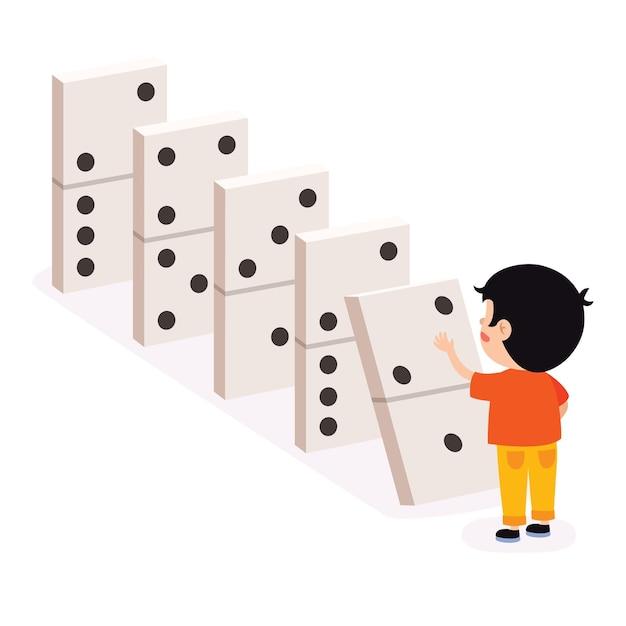Welcome to our blog post where we dive into one of the most debated topics in the coffee industry: Is Starbucks a monopoly? As you sip your latte and ponder this question, we’ll explore the dynamics of the coffee market, analyze the different types of market structures, and examine whether Starbucks fits the bill of a monopolistic entity.
In an era of global giants and fierce competition, it’s essential to understand the distinctions between monopolies, oligopolies, and monopolistic competition. We’ll draw comparisons, answer burning questions about other major players like Amazon, McDonald’s, Disney, Apple, and Nike, and shed light on the coffee market’s nature—whether it is truly a monopoly or if there’s still room for competition.
Join us as we delve into the captivating world of coffee and unravel the intricacies of market dominance. Grab your favorite brew, and let’s uncover the truth about Starbucks and its place in the caffeine-driven economy.

Is Starbucks a Monopoly?
The Rise of Starbucks
Starbucks has undeniably become a household name, with its green mermaid logo adorning coffee cups and storefronts across the United States. This global coffee company, founded in 1971, started as a single store in Seattle and has since expanded to over 30,000 locations worldwide. But the question on everyone’s mind is: Is Starbucks a monopoly?
Brewing up Market Dominance
While it’s tempting to label Starbucks as a monopoly due to its ubiquity, it’s important to consider the definition of the term. A monopoly is typically characterized by a single entity having exclusive control over a market, thereby exerting considerable influence and limiting competition. In the case of Starbucks, while it may seem like they have a stronghold on the coffee industry, there are several factors to consider.
A Sip of Competition
One key element to challenge the notion of Starbucks as a true monopoly is the presence of other major players in the coffee market. Competitors like Dunkin’ Donuts, Peet’s Coffee, and Tim Hortons offer compelling alternatives to Starbucks. These companies have managed to carve out their own loyal customer bases, providing consumers with options beyond the green and white siren.
Latte Love Across the Globe
Furthermore, Starbucks faces competition not only from other coffee chains but also from independent coffee shops that emphasize artisanal and locally sourced ingredients. These establishments cater to a different demographic, attracting those who crave a more personalized coffee experience. So, while Starbucks has an impressive market share, it isn’t the only game in town.
Caffeinated Innovation
Another factor to consider when exploring the monopoly status of Starbucks is the ever-evolving nature of the coffee industry. New players are constantly entering the market with innovative business models and enticing offerings. From trendy coffee trucks to subscription-based coffee boxes, these upstarts are challenging the status quo, pushing Starbucks to stay on its toes.
The Monopoly Mirage
In conclusion, while Starbucks may dominate the coffee market and feel like an inescapable presence, it falls short of meeting the criteria of a true monopoly. With fierce competition from other coffee chains and independent establishments, as well as the constant innovation in the industry, Starbucks’ grip on the market is not as ironclad as one might assume. So the next time you’re sipping on your favorite Starbucks brew, remember that there’s a whole world of coffee waiting to be explored beyond the mermaid’s realm.

Is Starbucks a Monopoly? Frequently Asked Questions
Is Starbucks a Monopoly or Oligopoly
Starbucks is neither a monopoly nor an oligopoly. It operates in a highly competitive market alongside other coffee chains and independent coffee shops. While Starbucks is undeniably a dominant player in the coffee industry, it does not possess enough market power to be classified as a monopoly or oligopoly.
Is the Coffee Market an Oligopoly
The coffee market can be considered an oligopoly. An oligopoly is a market structure characterized by a small number of large firms that control the majority of the market share. In the coffee industry, major players like Starbucks, Dunkin’ Donuts, and Costa Coffee compete for customers, making it an oligopolistic market.
What is the Difference Between Monopoly and Monopolistic Competition
A monopoly exists when a single company or entity has complete control over a particular market. Monopolistic competition, on the other hand, refers to a market structure where there are many firms selling similar but differentiated products. In a monopolistic competition, firms have some degree of control over pricing and can differentiate their offerings through branding and product features.
Is Amazon a Monopoly
Yes, Amazon is often regarded as a monopoly in certain sectors. With its extensive reach and dominance in online retail, Amazon has garnered significant control over the market. However, it’s important to note that Amazon faces competition in numerous sectors, including cloud computing, digital streaming, and logistics.
Is the Coffee Market Competitive
Yes, the coffee market is highly competitive. It is flooded with a wide array of independent cafes, national chains, and global brands. Consumers have the freedom to choose from various options, price points, and qualities, indicating a competitive market.
What Firms are Perfectly Competitive
Perfectly competitive markets are characterized by a large number of buyers and sellers, homogeneous products, ease of entry and exit, and no control over prices. In the coffee industry, small independent coffee shops often operate in a perfectly competitive market, where no individual player can influence market prices.
What are the Biggest Monopolies
Some of the biggest monopolies in recent years include tech giants like Google, Facebook, and Amazon. These companies have gained significant market power and dominance in their respective industries, leading to concerns about fair competition.
What Companies are Monopolies
Companies that are often referred to as monopolies include Alphabet Inc. (Google’s parent company), Facebook, and several regional utility companies. However, it’s worth noting that the classification of a company as a monopoly can sometimes be subjective and subject to legal interpretations.
Why are Monopolies Inefficient
Monopolies are often considered inefficient for several reasons. Firstly, without competition, monopolies have little incentive to innovate or provide the best possible products or services. Additionally, monopolies can exploit their market power by charging higher prices and reducing consumer choices. This lack of competition ultimately hinders overall market efficiency and economic growth.
Why is the Coffee Industry Monopolistic
While the coffee industry is not a monopoly, it does exhibit monopolistic competition. This means that while there are numerous coffee providers, each differentiates itself through branding, product quality, and unique consumer experiences. Companies like Starbucks have successfully developed their own niche and loyal customer base, giving them some degree of control over pricing and market influence.
What is an Example of an Oligopoly
One prominent example of an oligopoly is the smartphone industry. With major players like Apple, Samsung, and Huawei dominating the market, these companies compete fiercely for market share and technological advantages. Their actions and strategies have the potential to significantly impact the entire smartphone market.
What Type of Market is Starbucks
Starbucks operates in a monopolistic competition market. It faces competition from various coffee chains, independent cafes, and even fast-food restaurants. While it has a strong brand presence and customer loyalty, it still has to compete for market share by providing unique products and experiences.
Are McDonald’s and Starbucks Monopolies
Neither McDonald’s nor Starbucks is classified as a monopoly. Both companies operate in highly competitive markets, with McDonald’s competing in the fast-food industry and Starbucks in the coffee industry. Monopolistic competition is observed in both cases.
Is Disney a Monopoly
Disney is often accused of having a monopoly due to its extensive control over the entertainment industry. With its ownership of major film studios, television networks, theme parks, and media properties, Disney has a significant influence. However, it’s important to note that Disney still faces competition in various sectors of the entertainment market.
Is McDonald’s a Monopoly Market
McDonald’s does not operate in a monopoly market. It competes in the highly competitive fast-food industry, where numerous local and international chains vie for market share. While McDonald’s is undoubtedly a major player, it does not possess the characteristics of a monopoly.
What are Examples of Monopolistic Competition
Besides Starbucks and McDonald’s, some other examples of industries with monopolistic competition include the automobile industry (with various manufacturers offering differentiated vehicles), the fashion industry (with each brand having its own style and loyal customer base), and the consumer electronics industry (with companies like Apple and Samsung differentiating their products through branding and features).
Is the Coffee Industry a Monopoly
No, the coffee industry as a whole is not a monopoly. It comprises numerous players, including major chains, local cafes, and independent roasters. Consumers have a wide variety of choices when it comes to selecting their preferred coffee provider.
Where are Starbucks’ Main Competitors
Starbucks faces competition from several coffee chains, such as Dunkin’ Donuts, Costa Coffee, and Tim Hortons. Additionally, independent coffee shops and smaller regional chains also compete for customer loyalty. These competitors strive to attract consumers through different pricing strategies, product offerings, and unique customer experiences.
Why is Starbucks Considered a Monopolistic Competition
Starbucks is considered a monopolistic competition market player due to its ability to differentiate its products and provide a unique customer experience. Starbucks has successfully branded itself as a premium coffee chain, attracting a loyal customer base willing to pay a premium for their products.
Is Apple a Monopoly
While Apple holds a significant market share in various sectors, such as smartphones and smartwatches, it is not classified as a monopoly. Apple faces competition from other tech giants like Samsung, Google, and Huawei, as well as numerous smaller players in individual product categories.
Is Nike a Monopoly
Nike is not a monopoly. Though it is a dominant player in the athletic footwear and apparel industry, it competes with other major brands such as Adidas, Puma, and Under Armour. The competition within the industry keeps Nike from having a monopoly market position.
Is Starbucks a Pure Competition
No, Starbucks does not operate in a pure competition market. Pure competition exists in markets where numerous sellers offer identical products, and market prices are dictated by supply and demand. Starbucks, with its differentiated product offerings and pricing strategies, operates in a monopolistic competition market.
Is McDonald’s a Monopoly Economics
McDonald’s is not a monopoly in economics. It operates in the fast-food industry, which is highly competitive, with numerous global and local players. McDonald’s competes for market share alongside other fast-food chains, seeking to attract customers through pricing, product innovations, and advertising.
Who is Starbucks’ Competition
Starbucks’ main competition comes from coffee chains like Dunkin’ Donuts, Costa Coffee, and Tim Hortons. Additionally, independent coffee shops and local cafes also compete for customers. With an ever-growing coffee culture, there is no shortage of options for consumers seeking their daily caffeine fix.
Now that we’ve addressed some frequently asked questions about Starbucks and the coffee industry, you should have a better understanding of its position in the market and the competition it faces. Remember, while Starbucks may be a dominant player, it falls short of being classified as a monopoly. So go ahead, enjoy your favorite cup of coffee and explore the wide range of options available to you in this vibrant and competitive industry.
Disclaimer: This blog post is for informative purposes only and does not constitute legal or financial advice.